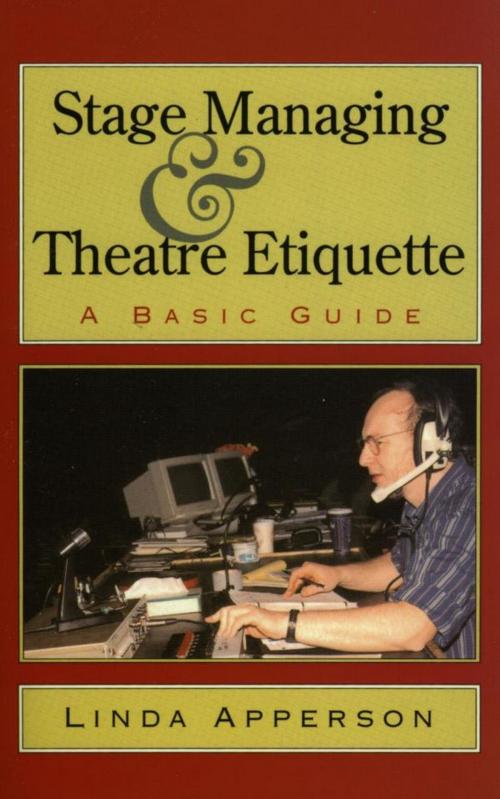Stage Managing and Theatre Etiquette
A Basic Guide
Nonfiction, Entertainment, Theatre, Direction & Production, Performing Arts, Drama| Author: | Linda Apperson | ISBN: | 9781461724971 |
| Publisher: | Ivan R. Dee | Publication: | September 1, 1998 |
| Imprint: | Ivan R. Dee | Language: | English |
| Author: | Linda Apperson |
| ISBN: | 9781461724971 |
| Publisher: | Ivan R. Dee |
| Publication: | September 1, 1998 |
| Imprint: | Ivan R. Dee |
| Language: | English |
Here is a practical, accessible introduction to one of the most complex jobs in theatre. Linda Apperson clearly and concisely leads the reader through the procedures and responsibilities of stage management, from auditions to closing night. What is “blocking”? How do you “call” a show? Who is the technical director, and why do you want him or her as your best friend? How can you tame (or endure) a prima donna? When is the best time to offer advice to the actors? Ms. Apperson answers these and countless other questions in a resource book that will become a constant companion for both the novice and the experienced theatre person. Especially useful is her attention to personal relationships among actors and crew. She insists that working to create an atmosphere of respect backstage will improve the show onstage, and she shows precisely how this is done, based upon her years of experience in managing the stage. Stage Managing and Theatre Etiquette includes samples of prompt scripts and other essential stage manager's tools.
Here is a practical, accessible introduction to one of the most complex jobs in theatre. Linda Apperson clearly and concisely leads the reader through the procedures and responsibilities of stage management, from auditions to closing night. What is “blocking”? How do you “call” a show? Who is the technical director, and why do you want him or her as your best friend? How can you tame (or endure) a prima donna? When is the best time to offer advice to the actors? Ms. Apperson answers these and countless other questions in a resource book that will become a constant companion for both the novice and the experienced theatre person. Especially useful is her attention to personal relationships among actors and crew. She insists that working to create an atmosphere of respect backstage will improve the show onstage, and she shows precisely how this is done, based upon her years of experience in managing the stage. Stage Managing and Theatre Etiquette includes samples of prompt scripts and other essential stage manager's tools.















